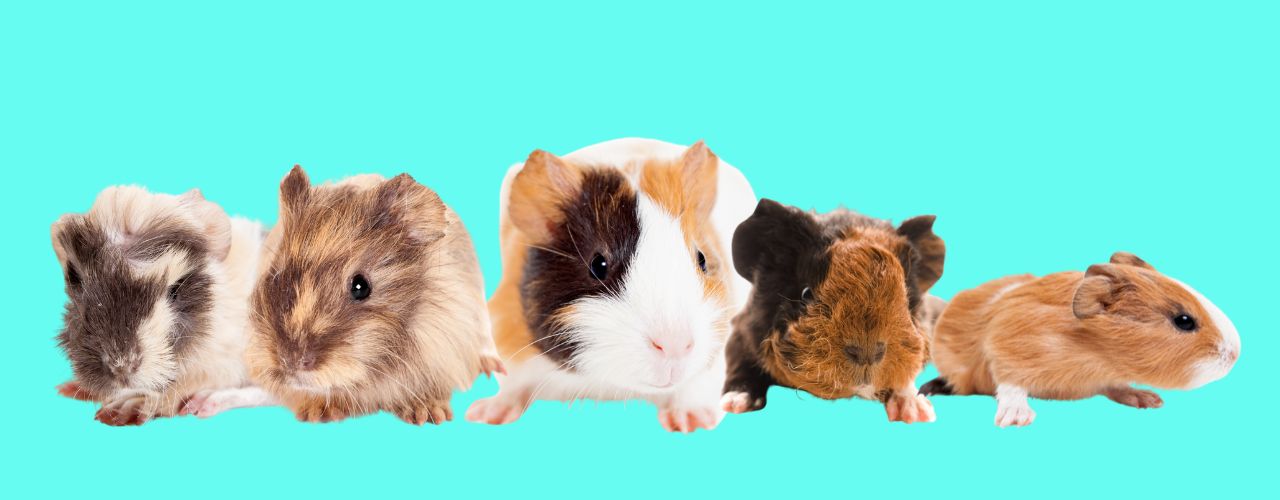
As Valentine’s Day approaches, many of us are gifted with beautiful bouquets of roses, symbolizing love and affection. While these vibrant blooms bring joy to our lives, they often begin to wilt after a few days. Instead of discarding them, consider repurposing them as a delightful treat for your guinea pigs. But are roses safe for guinea pigs? Roses, in their entirety, can offer a plethora of health benefits to these beloved pets. Let’s explore how you can extend the love from your Valentine’s bouquet to your furry friends while promoting their well-being and happiness.
If you’d prefer to continue in video format, our YouTube video includes all of the same information as this blog post!
Benefits of Roses for Guinea Pigs
Roses aren’t just for human enjoyment; they can also bring joy to our guinea pigs. These delightful creatures can benefit greatly from the consumption of roses, including the flowers, stems, leaves, and even rosehips. Let’s delve into the myriad benefits of incorporating roses into your guinea pig’s diet, along with some tips on how to prepare them safely.
Nutritional Benefits: Roses offer a variety of essential nutrients that can contribute to the overall health and well-being of guinea pigs. The petals, stems, and leaves contain vitamins A, C, and K, as well as antioxidants and fiber. These nutrients support immune function, digestion, and overall vitality.
Hydration and Digestion: The high water content in roses can help keep guinea pigs hydrated, especially during warmer months. Additionally, the fiber found in rose petals, stems, and leaves can aid in digestion, preventing issues such as constipation and promoting gut health.
Dental Health: Chewing on rose stems and leaves can help wear down guinea pigs’ continuously growing teeth, preventing dental problems such as overgrowth or malocclusion.
Enrichment and Mental Stimulation: Feeding roses to guinea pigs provides enrichment and mental stimulation as it is likely a taste and smell that they don’t frequently experience. The act of foraging and nibbling on fresh, fragrant petals can alleviate boredom and mimic natural grazing behaviors. For this reason, you can often find rose petals in foraging mixes like this one.
Rosehip Benefits: Rosehips are the fruit of the rose plant and are particularly rich in vitamin C, making them an excellent addition to a guinea pig’s diet. Vitamin C is crucial for guinea pigs, as they are unable to produce it themselves. Rosehips can support immune function and help prevent scurvy, a common health issue in guinea pigs caused by vitamin C deficiency.
How to Make Roses Safe for Guinea Pigs
Preparing Roses for Guinea Pigs: Before offering roses to your guinea pigs, it’s essential to prepare them properly. It is perfectly okay to wait until your bouquet begins to wilt and lose its beauty to then give them to your guinea pigs, as long as you follow these preparation steps. You can also provide the rose leaves that you pull off when you initially get the bouquet.
- Ensure Roses are Pesticide Free: A good way to buy pesticide-free roses is to go to a local florist or farm instead of a massive grocery store. Having an organic certification is a great sign! Though many chemicals can be rinsed off, it is much better if you can ensure the roses aren’t already coated in harmful chemicals.
- Submerge or Rinse: For Cut Roses from a Bouquet: If the roses are cut (from a florist or grocery store) they are likely treated with pesticides so it’s best to submerge them in water for a few minutes to help remove any chemical residues. This extra step ensures the safety of your guinea pigs. However, many traditionally sold bouquets are grown with significant pesticides that likely won’t be fully removed through washing so it’s best to only feed roses from organic farms or farms that provide information on their pesticide protocols. From Your Garden: If you’re using roses from your garden in which you refrain from using pesticides, a thorough rinse under running water should be sufficient to cleanse them before offering them to your guinea pigs.
- Remove Thorns: Carefully trim off any thorns from the stems to prevent injury to your guinea pigs.
- Serve in Moderation: While roses offer numerous benefits, they should be offered as a treat and not as a staple food in your guinea pig’s diet. Introduce them gradually to prevent digestive upset. Though you shouldn’t feed a whole bouquet at once, petals and leaves dry very easily and can then be kept for future foraging use. Simply pull the petals and leaves off of the stem and leave them out in a well-ventilated area inside an air-conditioned room. After a couple of days, they should be sufficiently dried – store them in an air-tight container for later use.
So offer your guinea pigs your wilted roses this Valentine’s Day! After all, they deserve our love, too! Roses can be a delightful and nutritious addition to their diet. From the petals to the stems, leaves, and rosehips, there are plenty of ways to incorporate this beautiful flower into your furry friend’s meals. Just remember to prepare them safely and offer them in moderation to ensure your guinea pig reaps the maximum benefits of this floral treat.
If your guinea pigs don’t like roses, that’s okay! If you’re looking to add some variety to their diet by way of flowers, read our article on edible flowers for your guinea pigs to learn about five other flowers they can eat!
*Links on this page may be affiliate but all affiliations were created AFTER already deciding we loved the product!

